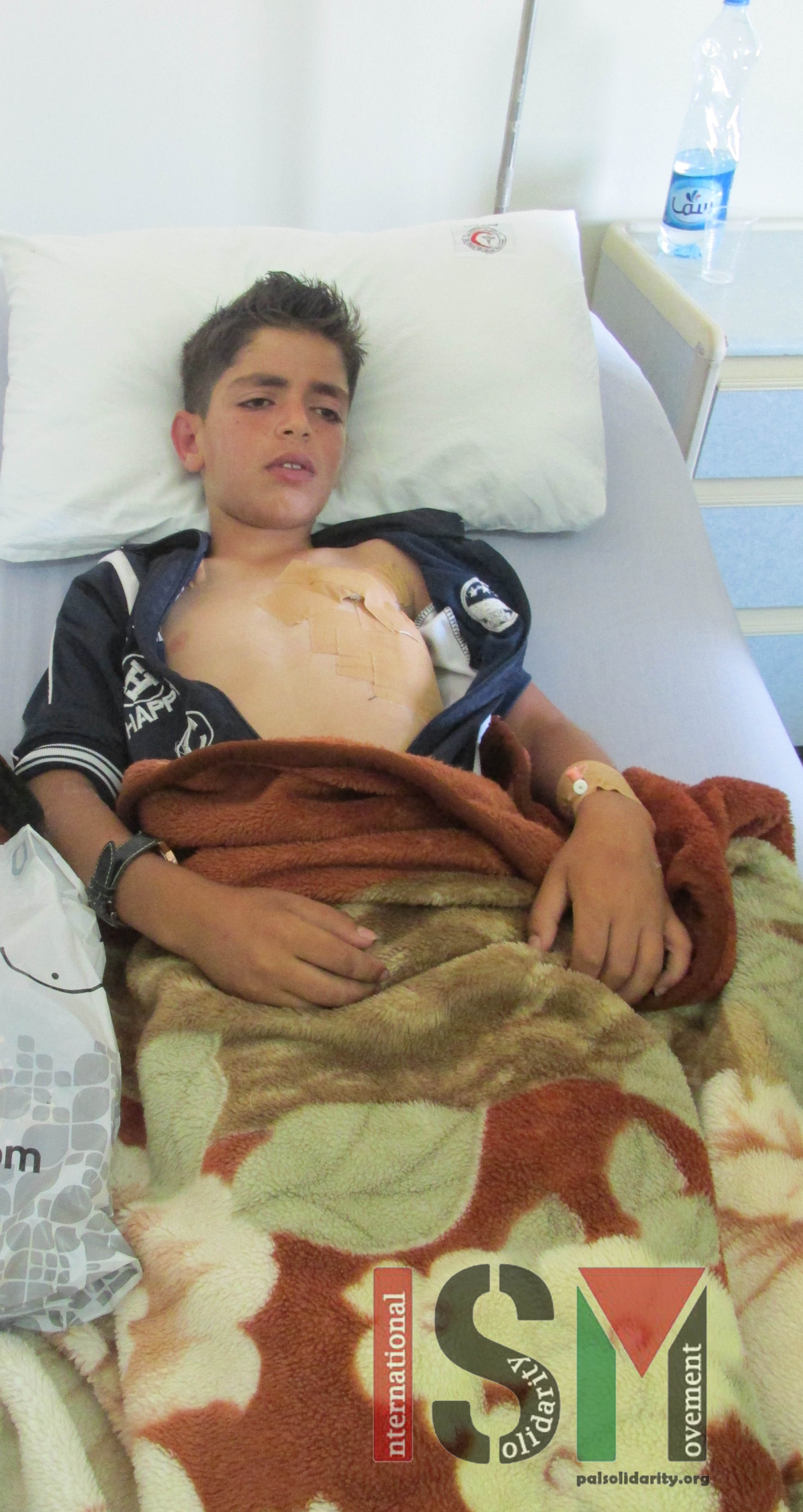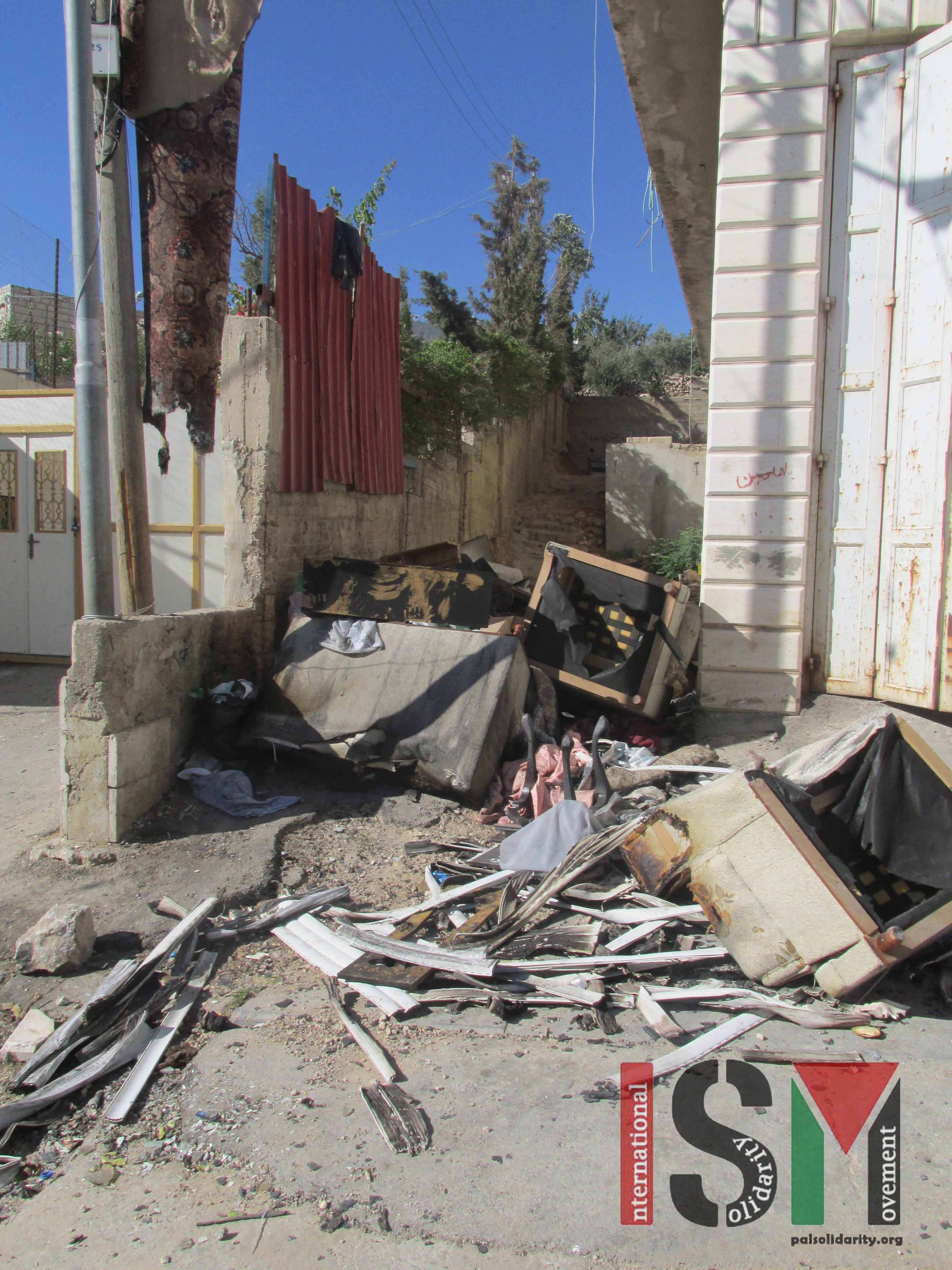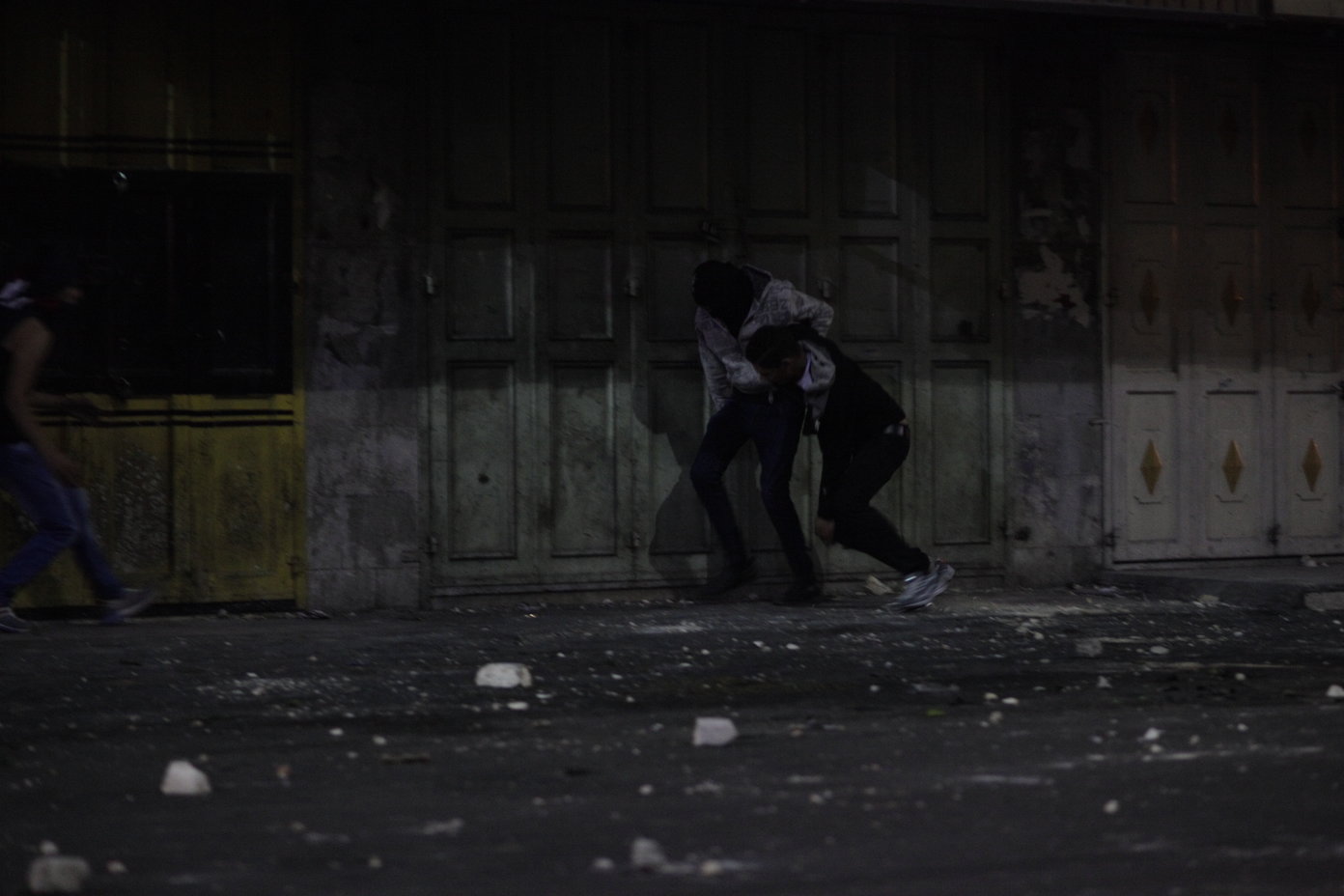Tag: Hebron
-
10-year-old child shot in chest with live ammunition
6th August 2014 | International Solidarity Movement, Khalil team | Hebron, Occupied Palestine In al-Khalil (Hebron) on Sunday August 3rd, a 10-year-old Palestinian boy was walking to his home near the illegal settlement of Kiryat Arba when the Israeli military shot him in the chest with live ammunition. The following day, ISM volunteers went to visit the…
-
Israeli army cause fire in Palestinian home
3rd August 2014 | International Solidarity Movement, Khalil team | Hebron, Occupied Palestine On Friday the 1st of August, at approximately 19:30 in the Gabal Gohar area of H2 (under full Israeli military civil and security control) in al-Khalil (Hebron), solders from the Israeli military caused a fire to a Palestinian apartment. The solders were shooting tear…
-
Live ammo used as ‘crowd dispersal’
31st July 2014 | International Solidarity Movement, Vern | Occupied Palestine On July 29th, Palestinian activists from the Human Rights Defenders Group, as well as several ISM volunteers, went to the Almezan Hospital in Hebron, and met some of the Palestinians recently shot and injured by Israeli soldiers. Some of them were taking part in clashes; others were…



